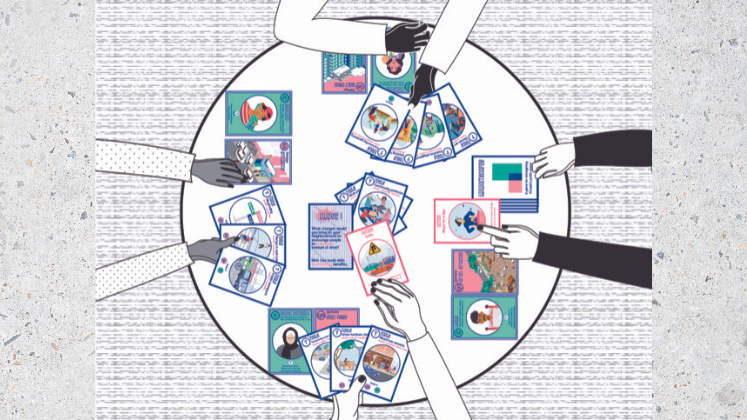The latest episode episode of the LSE IQ podcast asks: Do we need the arts to change the world?
As the UK government looks to recover from the costs of the pandemic its decision to cut funding for creative higher education courses could be seen as a pragmatic response to the changed world or a short-sighted move. LSE IQ talks to researchers who have used the creative arts to communicate their findings, and the President of the British Academy, about why the SHAPE (the Social Sciences, Humanities and Arts for People and the Economy) campaign is so important for today’s world.
To open up this question, LSE IQ talks to Dr Alexandra Gomes, co-creator of Kuwaitscapes (More on the research project that inspired the game, and to download the Kuwaitscapes game), Professor Patrick Wallis, who created an audio drama from the records of a historical document discovered about the Lock Asylum, a home for down-and-out women, Professor Emily Jackson, whose work on fertility has led to a change in the law, and finally British Academy President and LSE Professor Julia Black, who is spearheading the SHAPE campaign.
Listen to this episode on the LSE Player. Or search for LSE iQ on your favourite podcast app, LSE IQ is available on Apple Podcasts, Spotify and Soundcloud.
Featured image credit: Medallion with a Portrait of Gennadios, Inscribed in Greek ‘Gennadios most accomplished in the musical arts’, via The Met, Public Domain.







